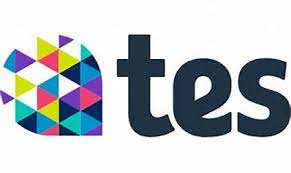
Why do proteins matter?
Proteins are one of the 3 types of macronutrients (along with carbohydrates and fats) that the body needs to properly function.
Many of today’s cuisines have meat as the primary source of proteins.
However, for vegans and vegetarians finding healthy plant-based sources of protein is not as easy.
Protein is necessary for the body to repair damaged tissue or grow additional tissue.
For things like making more muscle if you are working out or fixing your damaged quads after a long run.
Even fixing a broken bone takes proteins.
The body also needs protein to build necessary helpers like hormones, enzymes, or blood. Use our vegan protein sources chart to get your daily ration of protein!
How much protein is enough?
Proteins are essential for living healthy, but there is a common misconception that we need a lot of them.
The commonly accepted recommended intake is 0.36 grams per pound of body weight per day or 0.8 grams per kilo of body weight per day.
For a typical woman of 60kg / 130lbs, the recommended intake is 48g of protein per day.
For a typical man of 75kg / 165lbs, the recommended intake is 60g of protein per day.
Of course, this is an average.
If you are exercising a lot, your body will need more protein than that.
What happens if I take too much protein?
There are a few side effects of eating too much protein.
Most of them are fully reversible, though.
- Weight gain: the body tends to store excess protein as fat.
- Bad breath: if your protein intake is done parallel with lower carb intake, your body might be in ketosis, often leading to bad breath.
- Dehydration: there is a possible link between protein intake and lower hydration levels, but that is not entirely proven.
Note that you might find many other side effects linked to proteins, but many of these side effects are due to the type of protein consumed.
Essentially, animal-based proteins are linked to an increased risk of kidney damage, cancer, heart disease, and calcium loss.
But on a vegan diet, these risks have not been found so far.
What happens if I don’t have enough protein?
Protein deficiency can lead to a few negative consequences. Essentially, because proteins have a healing role in the body (muscle, skin, etc.), an insufficient protein intake leads to:
- Higher chance of infections: fewer enzymes (some are fighting bugs), less efficient blood circulation leaves the body at risk.
- Longer muscle recovery and muscle loss: A lack of protein leads to muscle decay. They shrink over time as muscle cells are not replaced. They are also weaker and slower to recover after an effort.
- Slow wound healing: if you cut yourself, healthy blood would throw many blood cells at the wound to fix it quickly. If you are protein deficient, fewer blood cells mean slower healing.
- Higher risk of fracture: bones are alive, and their maintenance requires proteins. A lack of protein leads to more fragile bones.
It is quite clear that proteins are important.
Are all proteins equal?
Proteins are essential macro-nutrients for your body.
But the term protein itself refers to chains of one or more amino acids – the brick of proteins.
There are 20 amino acids that the body needs to function, and 9 of them are called “essentials,” which means they can’t be synthesised, created by the body.
The 9 essential amino acids (histidine, isoleucine, leucine, lysine, methionine, phenylalanine, threonine, tryptophan, and valine) must then come from your food.
All proteins, regardless of their source (meat or vegetables), are made of various combinations of amino acids.
As a result, not all proteins will bring the right ratio of each amino acid, let alone the right quantity of essential amino acids.
Therefore, whatever the amount of protein you take, it is essential to diversify the sources to ensure that your body will get the right amount of each of its essential and non-essential amino acids.
What are the vegan complete protein sources?
Despite what people think, meat is not the only complete protein source!
Many vegan-friendly foods contain all 9 essential amino acids.
Among them are:
- Quinoa
- Tofu
- Beans
- Buckwheat
- Spirulina
- Hemp seeds
- Chia seeds
- Nutritional Yeast
- Hummus
Where can I find the best vegan protein sources?
First, did you know you only need 0.8g of protein per kg of body weight per day?
This is actually not that much, and it is easily achievable eating 100% plant-based protein.
So, let’s see what the main protein sources for vegans are and how much protein each ingredient will bring you per 100 grams.
- Nuts – almonds, cashews, pecans, walnuts, hazelnuts
- Seeds – pumpkin seed, flaxseed, sunflower seeds, hemp seeds, sesame seeds
- Grains – rice, amaranth, quinoa, wheat, spelt
- Pulses – chickpeas, black beans, cannellini beans, lentils
- Vegetables – Spinach, broccoli, artichokes, asparagus
- Soy product – mung beans, edamame, soy milk, tofu, tempeh
- Some fruits – avocado, apricots, blackberries, banana
Top 20 Best Vegan Protein Sources per 100g
Find below the highest vegan protein sources per 100g.
- Spirulina (dried): 55-66g / 100g
- Nutritional Yeast (powder): 45-55g / 100g
- Seitan (cooked): 24-72g / 100g
- Hemp Seeds: 31g / 100g
- Pumpkin Seeds: 29.9g / 100g
- Almonds: 20.3g / 100g
- Tempeh (cooked): 19.9g /100g
- Sunflower Seeds: 19.3g /100g
- Tofu (fried): 18.8g /100g
- Flax Seeds: 18.3g /100g
- Chia Seeds: 18.3g /100g
- Sesame Seeds: 17g /100g
- Hazelnut: 15g /100g
- Cashew nut: 14.9g /100g
- Walnut: 14.3g /100g
- Rolled Oats: 12.5g /100g
- Edamame (cooked): 11.9g /100g
- Cannellini Beans (cooked): 9.7g /100g
- Pecan nut: 9.2g /100g
- Lentils (cooked): 9g /100g
Top 20 Best Vegan Protein Sources per typical serving
Find below the highest vegan protein sources per serving.
- Seitan (cooked): 20-61g / 3oz
- Cannellini Beans (cooked): 17.4g /cup
- Tempeh (cooked): 16.9g /3oz
- Lentils (cooked): 16.2g /cup
- Tofu (fried): 18.8g /3oz
- Black beans (cooked): 15.2g /cup
- Kidney Beans: 14.4g /cup
- Chickpeas: 13.7g /cup
- Lima Beans: 13g /cup
- Mung Beans: 12.6g /cup
- Spelt (cooked): 10.7g /cup
- Edamame (cooked): 10g /3oz
- Teff (cooked): 9.8g /cup
- Hemp Seeds: 9.5g /30g
- Amaranth (cooked): 9.3g /cup
- Pumpkin Seeds: 9g /30g
- Green Peas: 8.6g /cup
- Quinoa (cooked): 8.1g /cup
- Soy Milk: 6.3g /cup
- Almonds: 6.1g /30g
Vegan proteins for kids
It is easier than you think to add proteins to your vegan kid’s plates.
Kids are picky eaters, and they don’t eat a large amount of food per meal.
That is why you must use their favourite food to sneak in protein-packed food.
Conclusion
While it is not that hard to get enough protein when you follow a vegan diet, getting the right protein requires some understanding.
Our vegan protein source chart is the best way to know where these protein sources are with no hassle!











